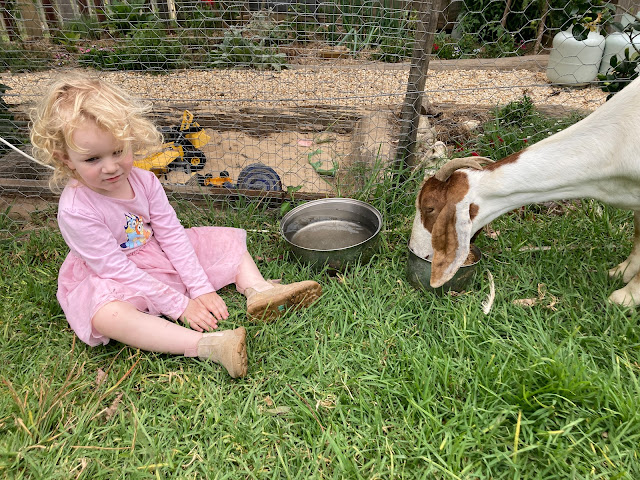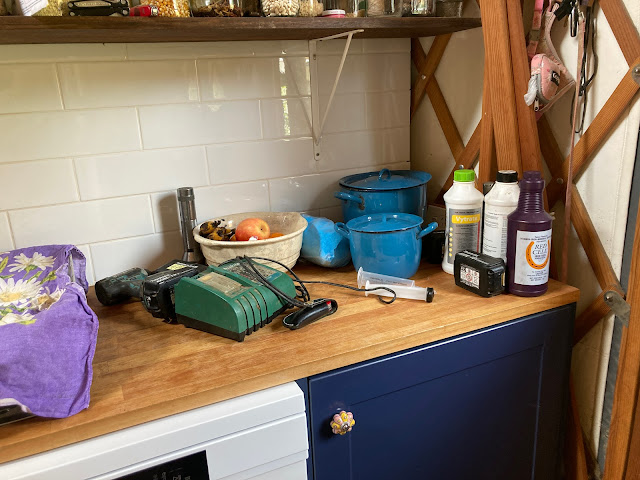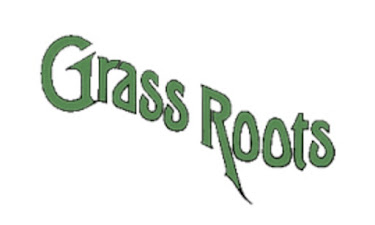So you think you want to homestead. What next?
We are currently living through a period in time when the cost of living is rapidly rising. There is an increasing breakdown of the industrialized, globalized supply train due to covid which is exacerbated by shaky global and economic relations. As a result, many people are looking to live a more localized and resilient life. Which is a very good thing.
The joy of helping a sick, near-death animal get well never gets old. This is my favourite goat Vicki and thankfully she is on the mend, though still receiving extra TLC until her condition returns to normal.
For some people that means staying right where they are and hooking into community gardens, supporting local farmers' markets, getting rid of a family car and embracing bike riding and public transport.
For others, it means a complete lifestyle change and moving to a property to allow them to grow their own fruit and veggies as well as producing some, if not all, of their own meat and eggs. There is no right or wrong way to transition to a more resilient and sustainable lifestyle. It can be done anywhere in countless ways.
There are some excellent resources and books for those wanting to live more sustainably where they are. Retrosuburbia by David Holmgren, Hannah Maloney's new book The Good Life, Milkwood by Kirsten Bradly, Down To Earth and The Simple Home by Rhonda Hetzel, The Art Of Frugal Hedonism by Annie Raser-Rowland and Adam Grubb
If are interested in homesteading Soil by Mathew Evans, anything by Joel Salatin, The Independent Farmstead by Shawn and Beth Dougherty, Natural Goat Care by Pat Coleby (Pat Coleby is excellent in general when it comes to holistic animal care) and Shannon Hayes The Radical Homemaker. Shannon Hayes books cross over between farming and simple living and all are worthwhile reads. There are many more of course, these are just a handful I have found helpful, interesting or inspiring.
These are just a few of the books I mentioned.
But for those wanting to get back to the land and farm on a small scale, in an old-fashioned way it can be hard to know where to start.
It's an idyllic thought to grow and produce all your own food and become entirely self-sufficient, and it's a great dream to have. But the reality is very few people are entirely self-sufficient as for most people it would mean giving up many things we love like tea, coffee, chocolate, sugar and anything produced from large-scale crops like wheat or legumes. It's not impossible of course, but it would likely demand such a drastic lifestyle change that few are willing to do it. We are certainly not. I have a deep love for coffee and chocolate especially. Fortunately, we don't have to go all in to make meaningful and sustainable lifestyle changes.
People are leaving the city in droves, perhaps covid and seemingly endless lockdowns magnified a pre-existing longing for a different life. A life more deeply connected to nature and to the production of their own food. Rural internet has drastically improved and the arrival of fast, reliable and unlimited internet via SkyLink has opened doors for people to work from home, despite being in the country. Covid forced many businesses to learn to operate in a different way. Zoom meetings have become a normal and entirely acceptable way of communicating. Because of these important changes, people are finally able to reduce ties to the city and many are seeking a better work/life balance.
You will find animals near death like Vicki was here, and fight to get them well. Perhaps tending them round the clock.
And when you win, it will bring such relief and joy. Though you won't always win.
But, if you have no farming experience or family land, how do you make the change?
Well, the first thing to do is find a property. Which is easier said than done. There are many things to consider when you buy land, but you don't have to come from a farming background to pursue your dream of owning a small farm. It is easier than ever to learn new skills via the abundance of books, blogs and YouTube. But it will take patience, consistency and determination to see it through. If in your heart of hearts you dream of small acreage or a small farm, you can do it. It might take a while, it took us 12 years to get here. But most things worth doing take time, hard work and commitment.
If you're still with me, keep reading!
Farmhouse chic isn't how real farmhouses look. There will be muddy boots, endless washing, patching of worn clothes, tools and animal-related stuff that sneak into your home,. It will probably end up on your kitchen table or near the door. There will likely be mud-covered eggs, a compost bin, and a chook bin residing there too.
Budget
The first thing to consider is your budget. Banks consider rural land a risky investment so it's likely you will need a bigger deposit. However, on the flip side land is usually significantly cheaper than in the city.The banks will require a 20-30% deposit. The hard part is you will need an income big enough to cover the mortgage as the bank probably won't consider the property as income producing, especially a small farm, unless you are buying an established business. This means if you want to turn your farm into a business that supports you, you will need enough money to cover the mortgage, invest in appropriate infrastructure and invest in your property. Growing your own food is a wonderful dream, but many people throw in the towel after the first couple of years as getting a property up and going is an incredibly hard slog.
Whatever your budget, you will also need to consider housing, fencing, machinery and any immediate maintenance. It cost us every dollar we had to buy our place and getting it set up has been an uphill battle. But it is possible if that's the path you decide to take, we are still here and slowly making progress. Just expect a lesson in patience!
Location
Do you want to be near a specific area? If so how are you willing to commute? Do you need access to schools, hospitals, good-sized towns, libraries etc? With the seemingly endless rise of the price of petrol, commuting and the cost of wear and tear on a vehicle is an increasingly important consideration. Zoning and permits are also important considerations. You will need to check carefully with the local council about zoning and whether you are allowed to do what you want to do on any land you hope to purchase.Size is also an important consideration. Can you do what you want to do on a couple of acres or do you want to get into farming in a more serious way? How much time do you want to commit to your land/week? If like us, building a farm is your end goal then it's important to consider what you can afford to buy that suits your needs, while considering the possibility of leasing/buying further land in the future. It is helpful to have any leases or future bought land within close proximity to your home base to make transporting supplies/machinery and equipment easier. Though it is useful to have a home base, you don't necessarily need to own all the land you hope to farm. Joel Salatin talks about this a lot and is a great resource for looking at how to farm outside the current mainstream model.
Gathering eggs from your own chooks will never stop being delightful.
Water
You cannot grow anything without water. Mains water on a large scale is expensive. What's the rainfall like? What are the seasonal weather patterns? Is there a bore? Can you drill one? Are there creeks or rivers going through your property? Can you install tanks? If you install tanks can you feed the water to where you need it via gravity or do you need to pump it? How are you going to power those pumps? What about drinking water? Do you have enough water to defend your property against bushfires?Water is a very serious consideration, it will affect what you can grow, when you can grow it and how much you can grow.
There will be more mud than you ever thought possible, and it will often end up in your house.
Location
What is the land you're looking at suitable for and does it match your dreams for your property? One of the best ways to work out if the land you're looking at is suitable is by looking at what others in the area are doing. Is it cropping country or pastoral land? Are they carrying cattle, sheep, goats, chickens or pigs? How much livestock are they carrying/acre? What kinds of fruits and vegetables are they growing? Getting local knowledge is the best way to learn about the climate of an area. Whether that be down at the local pub, reading the community papers, looking up information on the BOM, attending any livestock auctions or viewing various properties throughout your research stage.Eventually, you will work out what you want to do, and where you want to do it. This stage may take a long time and it shouldn't be rushed. It's a big investment of not only your financial resources but also your time, physical and emotional resources too. The cheapest land is not always the best and all properties have their positive and negative points to consider, especially if you are on a tight budget.
Our land is best suited to a little bit of sustainable forestry and livestock. It has been selectively logged for many generations and our open pasture could support a nice herd of cattle. Goats don't do badly on it, though in the wet we need to be vigilant about good hoof care and worms, especially the deadly barbers pole worm. If these are managed properly, goats can do well on our mixed country. Goats are broad grazers and need roughage through the availability of woody weeds in their diet as well as pasture. As a result, they work well for grazing the perimeter between the pasture and the bush where the cattle aren't so well suited. Cattle on the other hand like good quality pasture and hay for roughage. Chickens also do well around here. Most people have cattle in this area. Sheep are prone to problems with fly strike in this area due to the wet, humid climate and their wool coats.
It would be difficult to do any kind of large-scale commercial farming here due to the abundance of creeks and waterways as well as the cost of feed. Often commercial farms are located close to cropping areas where grain is more affordable and is a local resource. Anything you have to transport something a long way significantly increases the cost. Intensive farming requires various permits and EPA clearance. Recently there was a 2000head chicken farm that wanted to start up, but locals objected and it wasn't able to proceed.
Teenagers will still be teenagers, getting a property isn't a magic solution to keep kids of technology.
Community
Neighbours are also a consideration. If you are vehemently against native forestry, perhaps don't move into an area where native forestry is a major, long-held primary industry. It won't make you happy. If you want to grow organically and there is a property situated between huge broad acre cropping properties undergoing mainstream practices that include the spraying of herbicides, fertilizers and chemicals, don't buy it and then be upset that they use commercial sprays. Do your research and consider your values. If your neighbours are following the law on their own property, then you have no right to complain. You will only cause yourself unnecessary angst and stress. You will also isolate yourself from your new community.
Living in the country requires acceptance. There will likely come a time you will need your neighbours. Whether it is to sort out fencing, bushfires, a medical emergency, road maintenance, fallen trees or any number of things that can happen you might not have considered. It's best not to piss them off because of your expectations of what is right and wrong. In my experience, country people are overwhelmingly kind and helpful. Remember you catch more bees with honey. Just because someone sees something differently, it doesn't mean they are inherently bad. It means things are complex and there are many shades of grey. Most people are simply doing the best they can with what they know and have.
If you can think of other things to consider, please share them below. If you dream of homesteading, don't give up, just keep chipping away. It's a good and worthy dream.
Much love,
Emma
xx






















Such a good read, and rings so true..I'm 7 years into our bush acreage, off grid living project. Its a hard slog sometimes but it's always proven to be worth it so far. Thanks for the motivation and also the amazing clothesline idea! I'm going to build one asap as we're up on the northern Rivers of NSW and always needing more drying space with all the rain.
ReplyDeleteThanks 😊